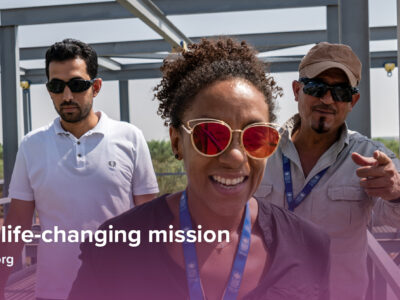UN Women grounded in the vision of equality enshrined in the Charter of the United Nations, works for the elimination of discrimination against women and girls; the empowerment of women; and the achievement of equality between women and men as partners and beneficiaries of development, human rights, humanitarian action and peace and security. At the core of its mandate, UN women play a leading role in supporting governments in delivering on their gender equality and empowerment of women (GEEW) commitments in the SDGs.
The Spotlight Initiative is a global, multi-year partnership between the European Union and the United Nations to eliminate all forms of violence against women and girls. The Spotlight Initiative in Nigeria aims to support a Nigeria where all women and girls, particularly the most vulnerable, live a life free from violence and harmful practices. The vision will be realized by addressing the linkages between sexual and gender-based violence and harmful practices with related aspects of sexual and reproductive health and rights as a cross-cutting theme. The focus is on prevention efforts, particularly addressing the root causes of gender-based violence and harmful practices (child marriage and FGM) against women and girls; and ensuring access to inclusive, timely, and quality services for victims and survivors with vibrant CSOs and women movement. The geographical scope is vertical, supporting interventions at federal, state and community levels and horizontally across 5+1 focus states of Lagos, Sokoto, FCT, Ebonyi, Adamawa and Cross River and the FCT.
In line with the Spotlight Initiative project, women and girls with disabilities are among the most vulnerable in society. They are not a homogenous group as they experience a range and variety of impairments, including physical, psychosocial, intellectual and sensory conditions, that may or may not come with functional limitations. The diversity of women and girls with disabilities, the systemic marginalization, attitudinal and environmental barriers they face lead to lower economic and social status; increased risk of violence and abuse including sexual violence; discrimination as well as harmful gender-based discriminatory practices; and barriers to access education, health care including sexual and reproductive health/rights, information and services, and justice as well as civic and political participation. All these hinder their participation on an equal basis with others.
Systemic barriers coupled with the failure to prioritize the collection of data on the situation of women and girls with disabilities have perpetuated the invisibility and the situation of multiple and intersecting forms of discrimination that excludes them from various aspects of life as well as across the humanitarian-development continuum. These attitudes can manifest in or be caused by harmful gender-based prejudices, practices and cultural norms – such as ageist attitudes and intimate partner and familial violence.
Data is the fifth pillar of the six mutually reinforcing pillars of the Spotlight Initiative. It states that measurement and methodologies for data collection, estimation, and reporting of VAWG/HP and SRHR are improved and strengthened and If (2) the capacity of national and sub-national institutions to collect, analyse and use disaggregated VAWG, including SGBV/HP, data in line with globally agreed standards are strengthened and If (3) disaggregated data (including, to the extent possible, by age, ethnicity, location, socio-economic status, disability) are made accessible and disseminated to be used by planners, policymakers, and civil society. THEN (4) laws, policies and programmes will be based on evidence and better respond to the specific contexts and realities of women and girls in Nigeria, including those most marginalized. BECAUSE (5) they will be based on quality, disaggregated and globally comparable data.
Strengthening disability inclusion in Spotlight Initiative requires data collection in order to understand and respond to the experiences and situation of women and girls with disabilities in the areas of gender-based violence, harmful practices and all forms of violence generally.










Comments